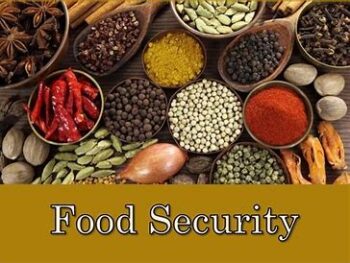
By Edel Whelton, Dept of Chemistry UCC
Day 3 of the Praxis Summer School took place on 8th June 2023 at Nano Nagle Place in Cork city, surrounded by such lovely gardens. For the morning session we are privileged to meet with four really fantastic speakers. During the afternoon we had workshops on Doughnut Economics and including a sub section on Food Security, Trocaire’s Business and Human Rights Campaign and LGBT+ people and human rights.
It began with a talk from Mr. Philip Mc Donagh.
Philip McDonagh’s Bio
Philip McDonagh is Director of the Centre for Religion, Human Values and International Relations.
He is Adjunct Professor in the Faculty of Humanities at Dublin City University and Director of the Centre for Religion, Human Values, and International Relations. As a diplomat, he was involved in the Northern Ireland peace process in the build-up to the Good Friday Agreement (as

Political Counsellor and deputy Head of Mission in London) and served as ambassador to India, the Holy See, Finland, and Russia and as Permanent Representative to the OSCE. Philip is co-author of On the Significance of Religion for Global Diplomacy (Routledge, 2021) and many articles on the place of religion and literature in the public sphere. He was lead author of the evaluation report on DFID’s Palestinian Market Development Programme (PMDP) in 2019 and is a member of the International Advisory Council of the Institute for Integrated Transitions (Barcelona), a Member of the International Advisory Council of the Institute for Economics and Peace (Sydney), and a Member of the Steering Committee of the OSCE Academic Network (Hamburg). Philip’s volumes of poetry include The Song the Oriole Sang (Dedalus Press, Dublin, 2010) and Gondla, or the Salvation of the Wolves (Arlen House, 2016), an adaptation of Nikolay Gumilev’s verse drama.
Here are some of my reflections:
Philip, having worked on the Good Friday Agreement for 5 years, was able to say that “Peace is a True Idea”. There are real values at stake (Mercy), we need hop in this situation and hope is necessary in the political process. This process might also change yourself! Hope is about persevering along a path that makes sense, even if you are not sure where it is going.
On ‘law’: there is always a possibility of changing the law.
Philip then talked about three projects he is involved with in his current work.
- 1. Future of Europe
- 2. Economics of Belonging
- Resilience in global food systems (Gertrude & Stephen, UCC staff are also involved in this project)
Within the Global Food Systems project there are five working groups on:
- Food Security
- Human rights (Faith communities)
- Agriculture
- Democracy
- Global Issues
The groups have been in discussion on issues such as trade issues, finance, concentrations of power, seeds, and fertilizers, food stocks, systems thinking.
Philip made many interesting points. Three which I found interesting were:
The partnership approach is interesting. There are around twenty organisations within this working group on food security. There are farmer representatives, NGOs, faith groups and academics. Together it examines the ways in which current global structures for international cooperation may not be fit-for-purpose when it comes to some of the major global challenges including food security, climate justice and global peace-building efforts. The project is analysing the ways in which religious leaders can support political efforts to address these challenges through effective multilateral engagement.
I also found the discussion on “Food and the Sacred” interesting. Philip spoke about food fasting and religion, festivals and occasions where food plays a role. In the Christian tradition, the Eucharist in the celebration of Communion is an example. Reality of loving and loving others in return. In Hindu, wasting food is wrong , food requires gratitude. Gandhi speaks about “The joy of the stomach”. In Islam during Ramadan, the holy month of fasting, and in many other religions, food is paired naturally with fasting. Sikhs welcome guests for free meals in their houses of worship. A lot of religions, teach that wasting food is intrinsically wrong because food is a gift that requires gratitude. In many traditions, eating is preceded by prayer. Religious traditions associate food with concepts and values such as sharing, celebration, community, and solidarity. What Philip suggested was that if we look at politics and global challenges with a values-led lens, we must place the communal dimension at the centre of how we think and take action to change the world. Food is a primary good on which life depends and therefore we have to give it priority. We need to fully appreciate that food consumption by the rich creates the demand for more food, that private health takes away from public health and so on. At the centre, I feel, Philip was discussing values in a way that really matters in Development Education. I wondered if education does talk about ‘values’ in this way and how refreshing it is to hear it.
There followed a fascinating conversation that ranged from slavery in the Ancient World, to addressing Vitamin A deficits in Sri Lanka, to democracy, faith communities, dialogue, women’s leadership, and youth leadership. I liked how Philip concluded with the powerful point that we should ‘trust in Society’.
